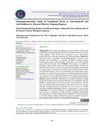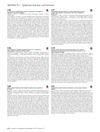 November 2023 in “Deleted Journal”
November 2023 in “Deleted Journal” Cedrus libani has potential medicinal uses but needs more safety studies.
 November 2023 in “Frontiers in veterinary science”
November 2023 in “Frontiers in veterinary science” The study provides insights into hair growth mechanisms in yaks.
[object Object]  October 2023 in “Jurnal Farmasi Galenika (Galenika Journal of Pharmacy)”
October 2023 in “Jurnal Farmasi Galenika (Galenika Journal of Pharmacy)” Traditional herbs in Amarasi District may help treat dandruff and hair loss.

Bee pollen, green tea, essential oils, and various plant extracts improve skin and hair health.
 September 2023 in “Asian journal of beauty & cosmetology”
September 2023 in “Asian journal of beauty & cosmetology” Lipids are important for healthy hair, but their exact role is not fully understood and needs more research.
 June 2023 in “Sains Malaysiana”
June 2023 in “Sains Malaysiana” Cinchonine Nanostructured Lipid Carriers serum safely and effectively stimulates hair growth and increases the number and size of hair follicles.
 March 2023 in “Journal of pharmacognosy and phytochemistry”
March 2023 in “Journal of pharmacognosy and phytochemistry” Unripe fruits of three banana species have many health-boosting compounds useful for medicine.
 January 2023 in “Journal of pharmacognosy and phytochemistry”
January 2023 in “Journal of pharmacognosy and phytochemistry” Herbal home remedies can effectively treat hair loss with fewer side effects.
[object Object]  June 2022 in “International journal of drug delivery technology”
June 2022 in “International journal of drug delivery technology” Nebivolol cream may be a promising hair loss treatment by improving blood flow and nourishing hair follicles.

Accurate diagnosis and tailored treatments are crucial for managing hair loss in humans and animals.
 November 2017 in “Asian journal of pharmaceutical and clinical research”
November 2017 in “Asian journal of pharmaceutical and clinical research” Three compounds from Dadap leaves may help treat hair loss.
 September 2017 in “The journal of investigative dermatology/Journal of investigative dermatology”
September 2017 in “The journal of investigative dermatology/Journal of investigative dermatology” The reconstructed skin model from hair follicles functions like human skin in processing chemicals and can be used to test ingredient safety.
 February 2006 in “Journal of The American Academy of Dermatology”
February 2006 in “Journal of The American Academy of Dermatology” Terbinafine is more effective than itraconazole for toenail fungus, especially in older patients, and debridement improves its effectiveness.
 January 1997 in “Elsevier eBooks”
January 1997 in “Elsevier eBooks” The document explains how shampoos clean, rinses condition, one-step shampoos offer convenience, and hair growth promoters aim to prevent hair loss, emphasizing the importance of scientific evidence for their effectiveness.
11 citations,
April 2012 in “Journal of Investigative Dermatology” A specific mutation in PA-PLA1α causes abnormal hair growth.
January 2023 in “International journal of research publications” Rice bran oil works as well as 2% minoxidil to prevent hair loss and promote hair growth.
 3 citations,
November 2019 in “DOAJ (DOAJ: Directory of Open Access Journals)”
3 citations,
November 2019 in “DOAJ (DOAJ: Directory of Open Access Journals)” Pumpkin seed oil may help hair grow and could be an alternative treatment for male hair loss.
 1 citations,
May 2023 in “International Journal of Applied Pharmaceutics”
1 citations,
May 2023 in “International Journal of Applied Pharmaceutics” Placenta extract in novasomes improved rat hair growth better than minoxidil and placenta extract in liposomes.
84 citations,
February 2015 in “Experimental Dermatology” PPARγ is crucial for skin health but can have both beneficial and harmful effects.
33 citations,
March 2018 in “Trends in cell biology” Metabolism plays a key role in determining stem cell fate.
21 citations,
April 2021 in “ACS omega” Curcumin can be effectively loaded into polystyrene nanoparticles, which are safe for human cells and more biocompatible with curcumin inside.
12 citations,
August 2020 in “The anatomical record” miR-203a-3p helps hair follicle stem cells become specialized by targeting Smad1.
12 citations,
January 2018 in “Pharmacology & pharmacy” Pumpkin seed products may help improve prostate and bladder health by blocking certain enzymes and hormone receptors.
 4 citations,
May 2022 in “Future Journal of Pharmaceutical Sciences”
4 citations,
May 2022 in “Future Journal of Pharmaceutical Sciences” Melatonin-loaded microemulsion could be a promising treatment for hair loss.
2 citations,
July 2023 in “Cosmetics” Surfactants in shampoos and conditioners remove some but not all lipids from hair, and more research is needed to understand their full impact.
2 citations,
January 2016 in “Advanced biomedical research” The hair wax with propolis and Eruca sativa seed oil promotes hair growth effectively.
1 citations,
April 2022 in “Acta histochemica” Pumpkin seed oil promotes hair growth and improves hair texture without harmful effects.
 1 citations,
April 2018 in “Our Dermatology Online”
1 citations,
April 2018 in “Our Dermatology Online” Massaging the scalp with a cosmetic containing certain natural inhibitors can significantly regrow hair in men with pattern baldness.

Intermittent fasting slows hair growth by damaging hair follicle cells.
 July 2024 in “International Journal of Ayurvedic Medicine”
July 2024 in “International Journal of Ayurvedic Medicine” Certain compounds from Kushtakudori ennai may help treat hair loss.




















